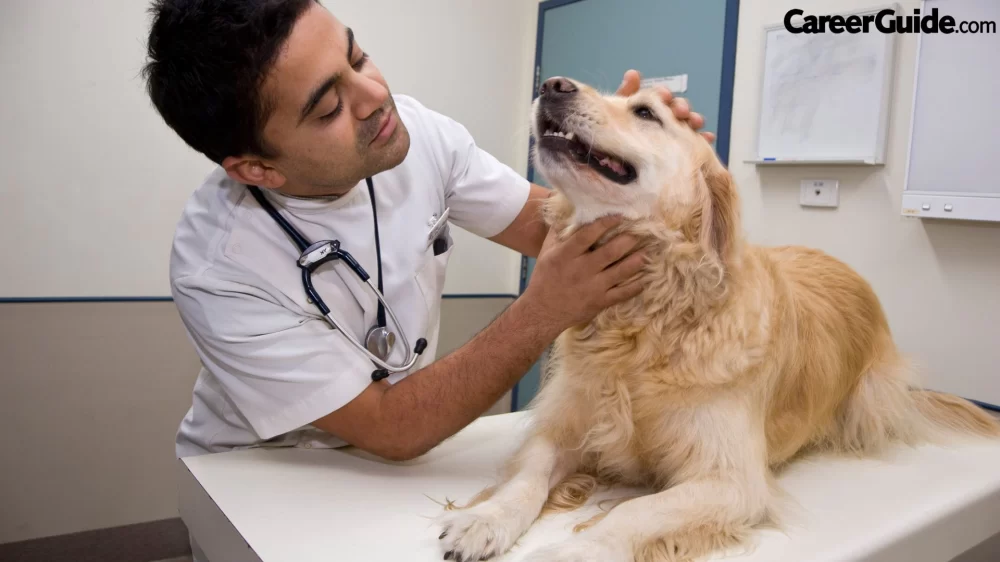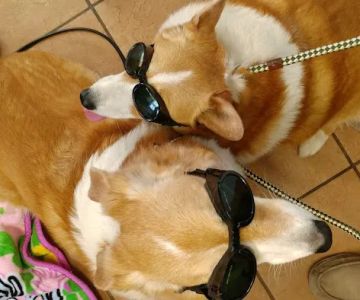- 1-Understanding-the-Veterinary-Career-Path-in-USA
- 2-Educational-Requirements-and-Vet-School-Admissions
- 3-Vet-School-Experience-and-Specializations
- 4-Licensing-and-Continuing-Education
- 5-Real-Stories-from-Successful-Veterinary-Doctors
- 6-Starting-Your-Journey-Today
1. Understanding the Veterinary Career Path in USA
Becoming a veterinary doctor in the USA is a rewarding journey that requires dedication, education, and passion for animal care. Veterinary medicine combines science, medicine, and compassion to treat and prevent illnesses in animals, ranging from household pets to large livestock.
The path begins with a strong foundation in biology, chemistry, and animal sciences during undergraduate studies, progressing to specialized veterinary training. Understanding the steps involved helps aspiring vets plan efficiently and realistically.
1.1 What Does a Veterinary Doctor Do?
A veterinary doctor diagnoses health issues, performs surgeries, prescribes medications, and advises pet owners on proper care. They may work in private clinics, zoos, research facilities, or food safety agencies. The profession requires excellent communication skills and the ability to stay calm in emergencies.
2. Educational Requirements and Vet School Admissions
One of the key challenges in how to become a veterinary doctor in the USA is meeting the rigorous educational standards. Most veterinary schools require applicants to have completed a bachelor’s degree with prerequisite courses such as biology, chemistry, physics, and math.
The Veterinary College Admission Test (VCAT) or GRE scores are often required as part of the vet school application process. Extracurricular activities such as volunteering at animal shelters or internships in veterinary clinics significantly strengthen applications.
2.1 Tips for Vet School Applications
Successful candidates often demonstrate strong academic performance, relevant hands-on experience, and a clear motivation for pursuing veterinary medicine. Personal statements and interviews allow applicants to showcase their dedication and suitability for the career.
3. Vet School Experience and Specializations
Veterinary school typically lasts four years and combines classroom learning with clinical rotations. Students gain hands-on experience treating animals under supervision, learning about various species, surgical procedures, and diagnostic methods.
After graduation, many vets choose to specialize in fields like surgery, dermatology, internal medicine, or exotic animal care. Specialization requires additional residency training and certification but opens doors to advanced career opportunities.
3.1 Balancing Study and Practical Experience
The intense curriculum can be challenging, but staying engaged through research projects or animal welfare organizations enriches the learning experience and builds professional networks.
4. Licensing and Continuing Education
To practice legally, graduates must pass the North American Veterinary Licensing Examination (NAVLE) and obtain state licensure. Each state has its own requirements, but the NAVLE is a universal standard.
Veterinary medicine is a constantly evolving field, so continuing education is crucial. Attending workshops, seminars, and advanced courses ensures vets stay updated on new treatments and technologies.
5. Real Stories from Successful Veterinary Doctors
Dr. Emily Rodriguez, who graduated from a top US veterinary school, shares how volunteering at a local animal shelter shaped her career choice. She credits her practical experience during vet school for developing her confidence in emergency care.
Another inspiring story is of Dr. Michael Lee, who specialized in wildlife rehabilitation and now works with endangered species. His advice to aspiring vets is to remain curious and compassionate, traits essential for long-term success.
6. Starting Your Journey Today
If you’re passionate about animal health and wondering how to become a veterinary doctor in the USA, now is the time to take action. Begin by focusing on your academic foundation and gaining experience through internships or volunteer work.
To make your path smoother, explore specialized resources and products tailored for veterinary students and professionals. Investing in quality study materials, practical tools, and career guidance services can enhance your preparation and confidence.
Unlock your veterinary dreams today and take the first step toward a fulfilling and impactful career.












